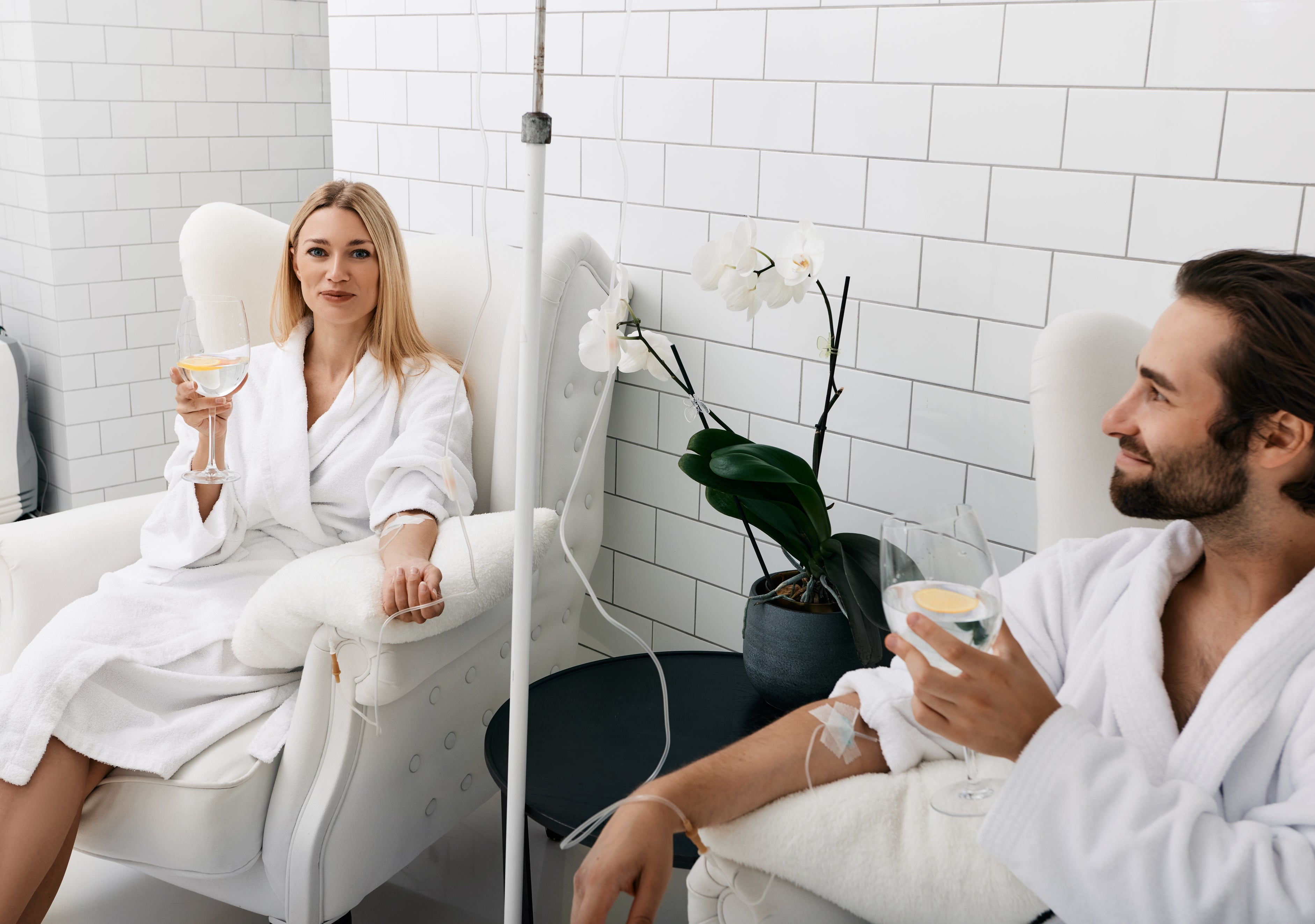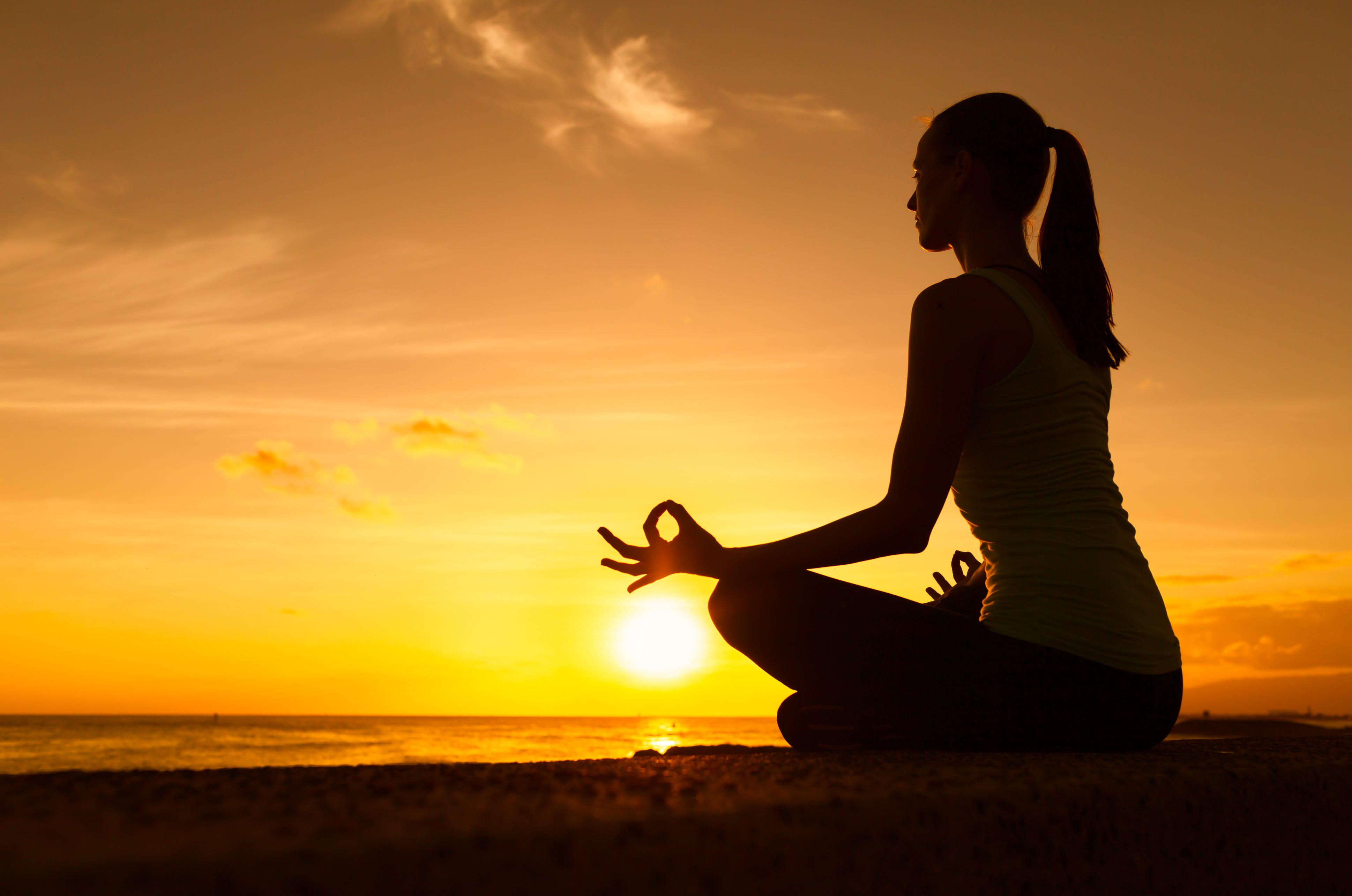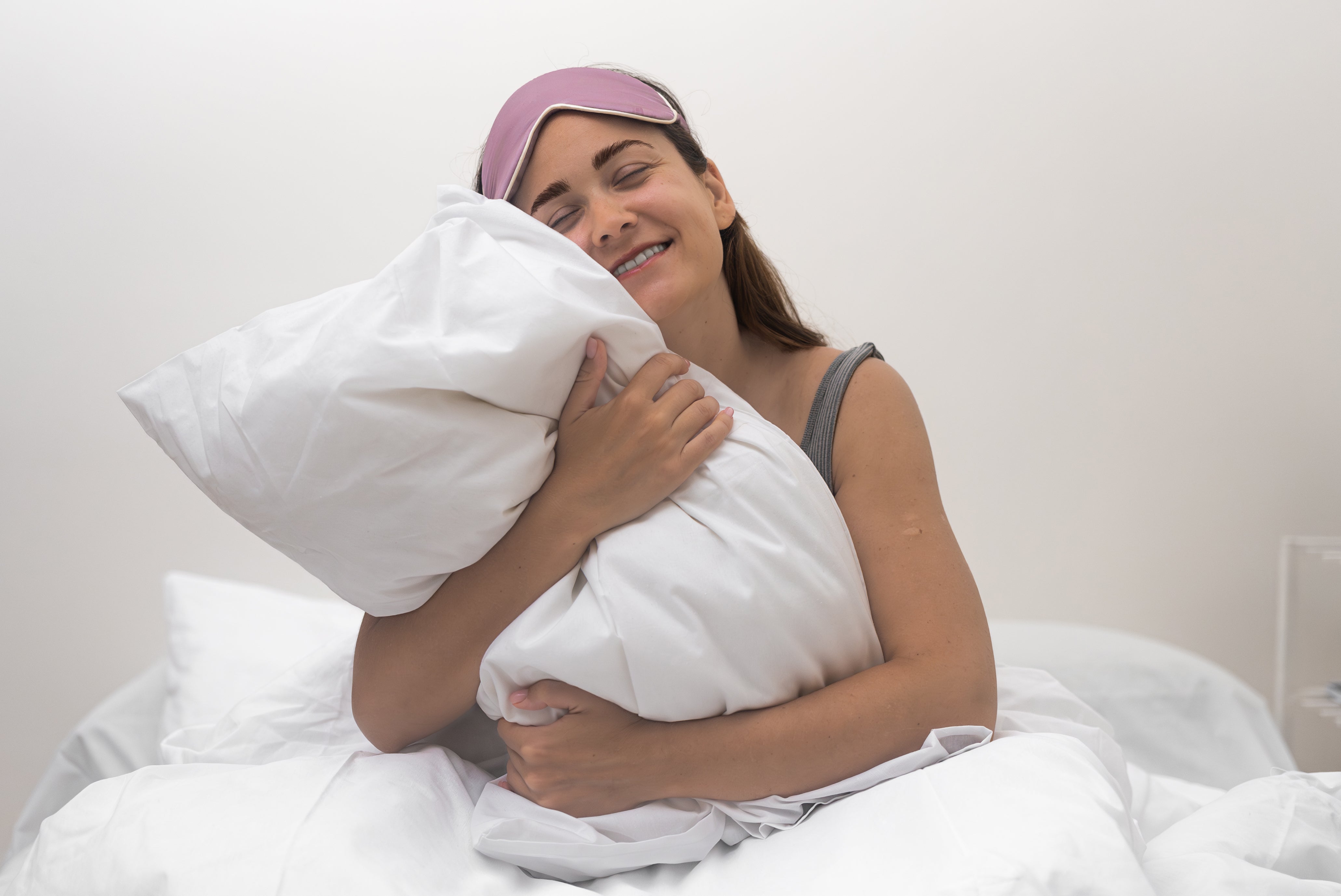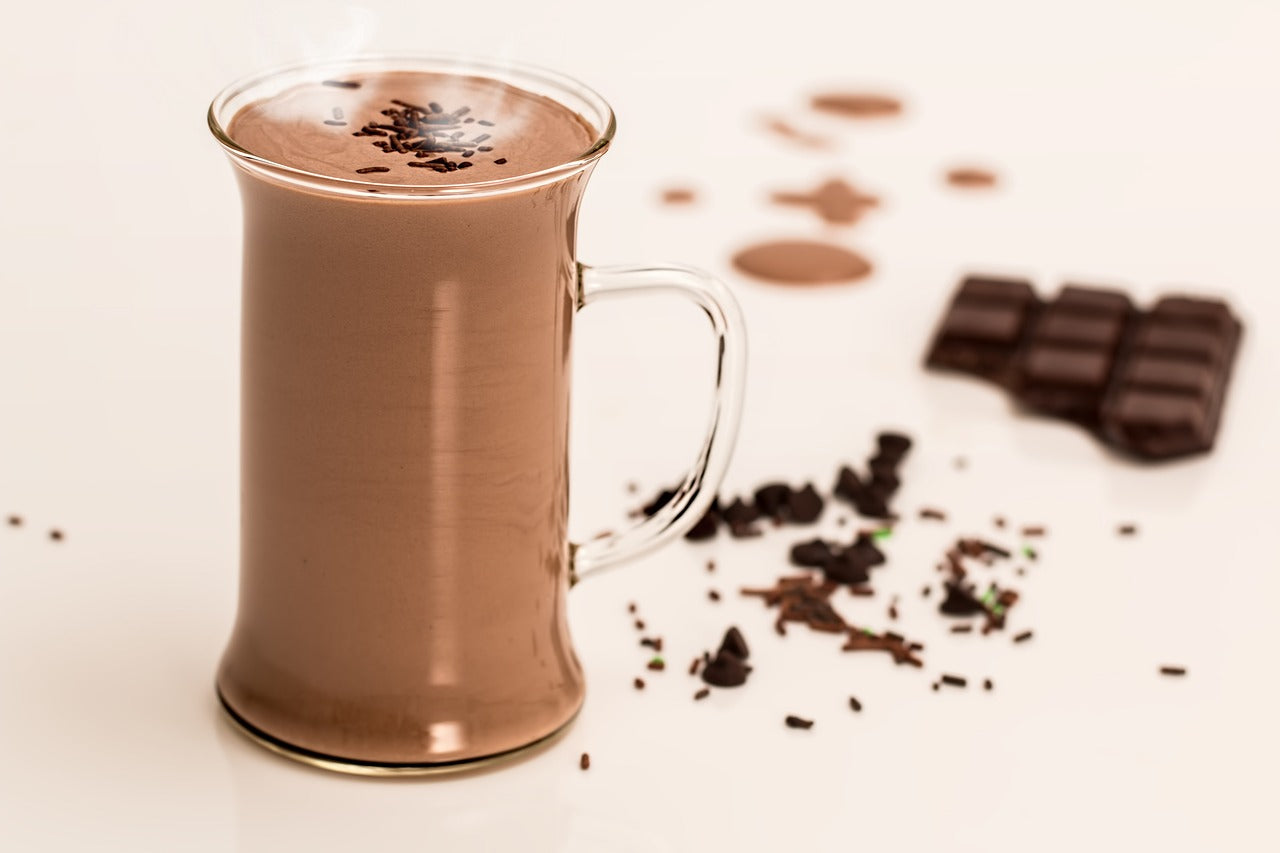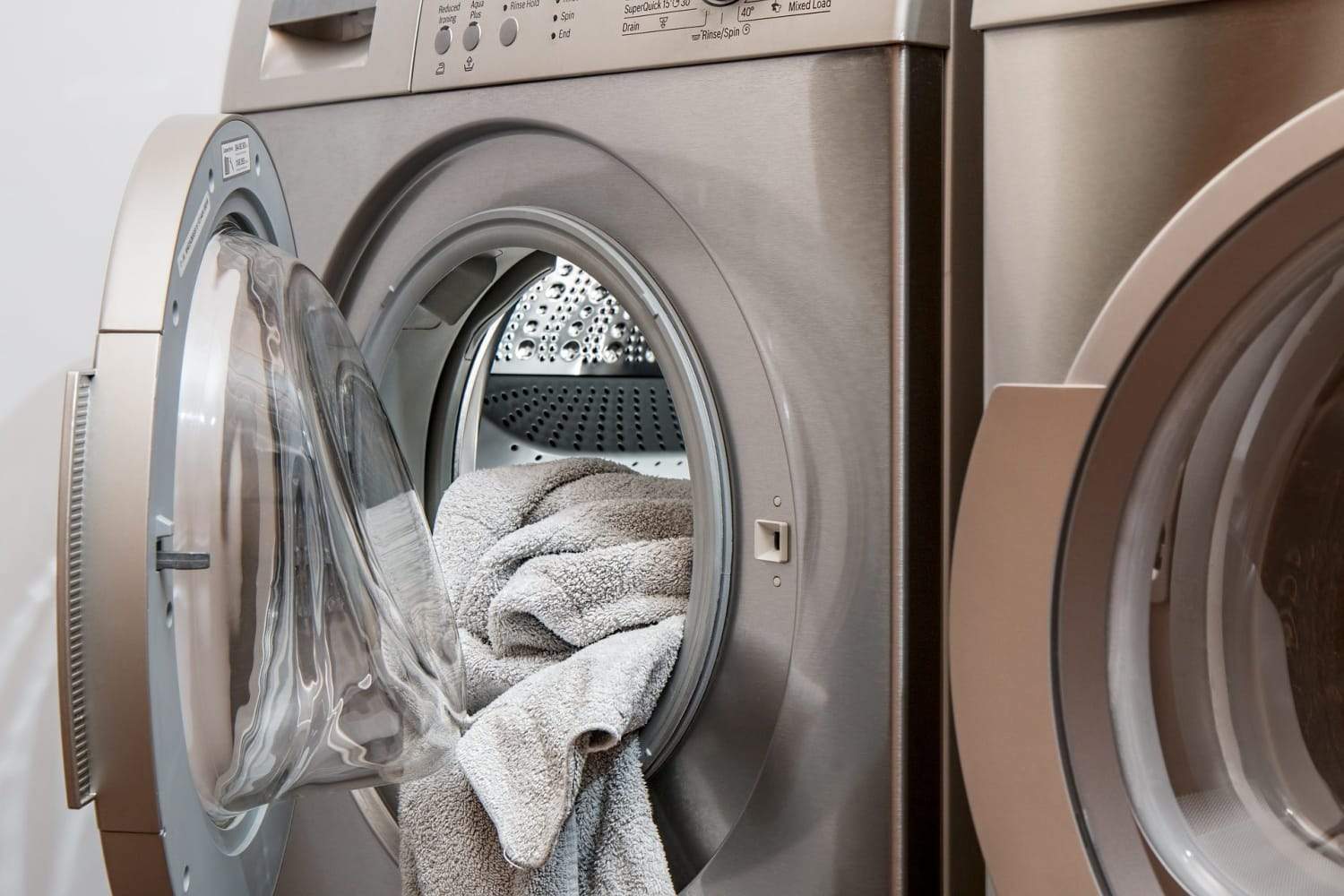Have you ever woken up feeling parched with a dry mouth, eyes, and nose? This kind of dryness can be uncomfortable, painful, and even cause health issues. This is where humidifiers can save the day

A humidifier adds moisture to the air, preventing that dry feeling you may wake up with. If you aren’t familiar with humidifiers, they are usually a small appliance that you plug into an outlet in your room that adds humidity to the air. There are different types, but the most common humidifier for your home is an evaporative humidifier. These are portable and can only benefit one room, like your bedroom.
Many people use them, and they are becoming increasingly popular! Although you can use them any time, most people prefer to run them at night when they feel the effects of dry air the most. Using a humidifier in your bedroom can provide you with plenty of benefits. Combine this with a lavender pillow, linen spray, and sleep tea, and you will feel as though you're drifting off to sleep on a lavender-scented cloud.
If you are considering a humidifier for your bedroom, check out the following 12 benefits of using a humidifier.
1. It can reduce snoring

When the air is dry, snoring can sound a lot worse because your airways aren’t sufficiently lubricated. Although a humidifier may not stop snoring altogether, it can reduce it. When you increase the amount of moisture in the air, it is less likely to get trapped and can make snoring quieter.
2. It will keep skin and hair hydrated

In the winter, the air is colder and dryer. As a result, you are more prone to chapped lips, dry skin, and hair. This is often the result of our heating systems. When you crank up the heat, warm, dry air is circulated throughout your house. Having a humidifier running will help you stay hydrated and prevent the effects of dry, winter air. Unbeknownst to many, air conditioning can also cause dry air, making humidifiers beneficial year-round. When your dry skin is flakey and scaly, it can cause more allergies and provide a more enticing environment for dust mites.
3. Loosen trapped phlegm

Humidifiers have been a home remedy for colds for a very long time. And before humidifiers, people would breathe in steam over boiling pots of water (which is much riskier!). This was done to breathe in moisture. When moisture gets into your airways, it makes your cough more productive, releasing any trapped phlegm that can make the symptoms of your cold feel worse.
4. Prevents the flu

Although it may sound like an “old wives tale”, research backs it up! One study, in particular, found that using a humidifier could reduce your risk of catching the flu. In this study, the virus was added to the air with a simulated cough. The researchers found that when humidity levels were higher (above 40%), it rapidly deactivated the virus particles, which reduced infectivity to 14%. Without the humidity, infectivity was much higher at almost 75%. This means that having a humidifier in your home could reduce your chance of getting sick.
5. You can reduce your heating bill

When the air is more humid, it will feel warmer. Alternatively, when it’s drier, it feels colder. This means that if you have your humidifier running during the winter months, you won’t need to turn the heat up as high and can save on your utility bills.
6. Reduces congestion and nose bleeds

Dry air can cause congestion, painful dryness in your nose, and nose bleeds. Congestion occurs when dry air causes mucus to dry out, becoming thicker and clogging the nasal passageway. When it happens, you feel like your nose is stuffed, you may have sinus pain or even a sore throat. This isn’t pleasant but is easily preventable with a humidifier. When you keep the humidity up in your bedroom at night, you will prevent your nasal cavity from drying out.
7. It can help with sleep apnea

Sleep apnea is a breathing condition that occurs at night. Generally, those with sleep apnea use a CPAP machine to help with their breathing and get a better night’s rest. However, research has found that the benefits of a CPAP machine could be enhanced with the use of a humidifier. According to the American Sleep Apnea Association, adding a heated humidifier with CPAP can help improve sleep. This is because a CPAP machine on its own can dry out airways, disrupting sleep.
8. Great for babies sensitive skin and aids in breathing

Humidifiers are great for babies and children’s rooms. Due to their sensitive skin and airways, little ones are more susceptible to dry air. By increasing the humidity level while they sleep, you can keep their sensitive skin moist and prevent irritation. Humidifiers can also clear their nasal passages, loosen congestion, and help them sleep.
9. Reduce staticky sheets

If you live in colder temperatures and need to keep the heat on during the winter, you know all about the electrical shocks you can get from your bedding. The combination of carpeting, dry air, and bedding can create a lightning storm in your bed, which can give you and your pets little shocks. A humidifier can alleviate this by adding a bit of moisture to the air.
10. Can reduce allergies and sinus issues

When your nasal passage is dry, it can make it easier for germs, pathogens, and bacteria to enter. This can make allergies worse. Conversely, when there is greater humidity, your nasal passage will be more lubricated, making it more difficult for these allergens to affect you.
11. May decrease the risk of catching COVID-19

Though the research is still preliminary, one study has found that when there is just a 10% decrease in humidity, the transmission rate of COVID-19 is doubled! Although there are likely a number of factors at play, we have seen that transmission rates are higher in cooler months. Research has shown that viruses are able to live longer and remain suspended in the air when it is dry. Add some moisture, and it makes it a lot harder for the virus to stay in the air. With humidity, droplets quickly expand and fall to the floor, making it harder for others to breathe them in. The research states that a humidity level of 40 – 60% is ideal for reducing transmission.
12. Will help you fall asleep faster, stay asleep and get a better quality of sleep.

Last but certainly not least, it can help you sleep. A humidifier can improve sleep quality by remedying many of the issues experienced with dry air that can disrupt it. For example, According to The National Eczema Association, eczema can disturb sleep. This can be reduced with the use of a humidifier as skin irritation is exacerbated by low humidity levels.
Those who snore can have disrupted sleep as well. From the noise or vibrations, they can continuously wake themselves (or their partner) up in the night. If dry airways cause the snoring, it can be relieved with the use of a humidifier. For those with sleep apnea, their CPAP machine may dry out airways, causing a burning sensation in their nasal passage and congestion, which wakes them up at night. By using a CPAP humidifier, these problems are resolved and they can sleep soundly.

The secret to improving sleep with a humidifier is getting the right humidity level. If you are using a humidifier, you should note that too much humidity can disturb sleep. NASA discovered this in one of their studies, determining that 50-60% humidity was optimal for rest. Any higher, and it may disrupt your sleep. This is because it makes the room feel warmer, and a cool room is better for sleep.
A less apparent sleep-inducing benefit is the white noise humidifiers give off. Research has found that white noise can help people stay asleep. The soothing whirl of the fan can help lull you to sleep and prevent you from waking up from outside noises.
Our bodies are complex, and sleep is a complicated process involving multiple different systems. Just as many things can disrupt our sleep, there are also plenty of things that can improve it. Consistent, quality sleep is critical to health and wellness, and many will do whatever they can to ensure they are getting enough rest.
You can be proactive and take action to improve the quality of your sleep. For example, lavender-scented items like a lavender pillow or linen spray can provide a calming effect. Certain herbal ingredients in a sleep tea can also trigger your body to get ready for bed. And finally, turning on a humidifier in your bedroom can improve sleep.
A humidifier can provide you with plenty of benefits, like the ones listed here, to help you sleep soundly and wake up feeling refreshed and hydrated.

